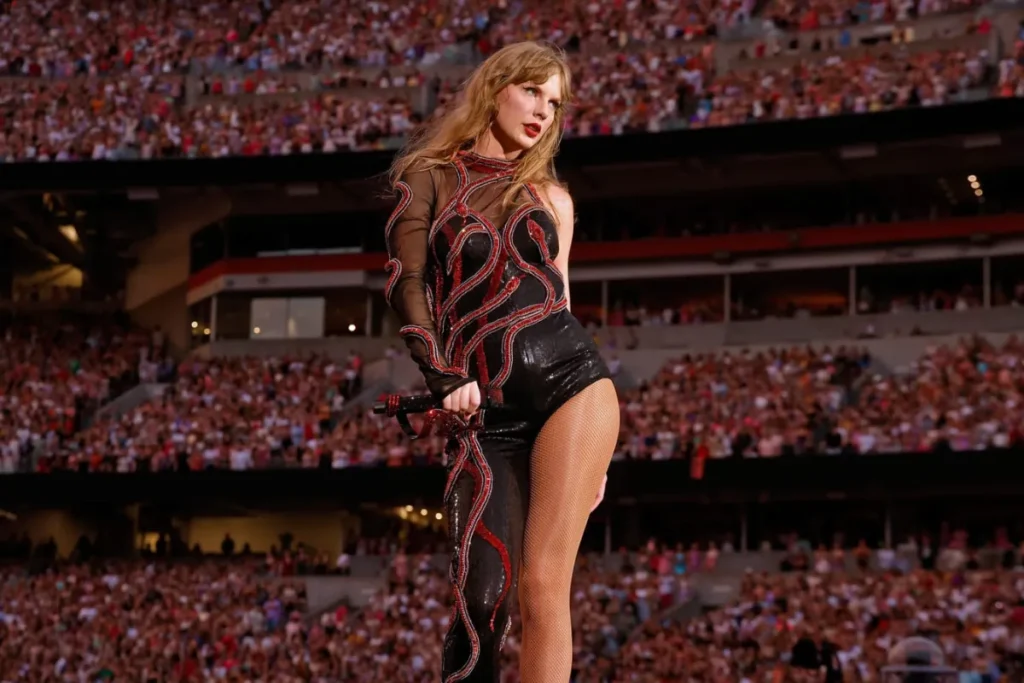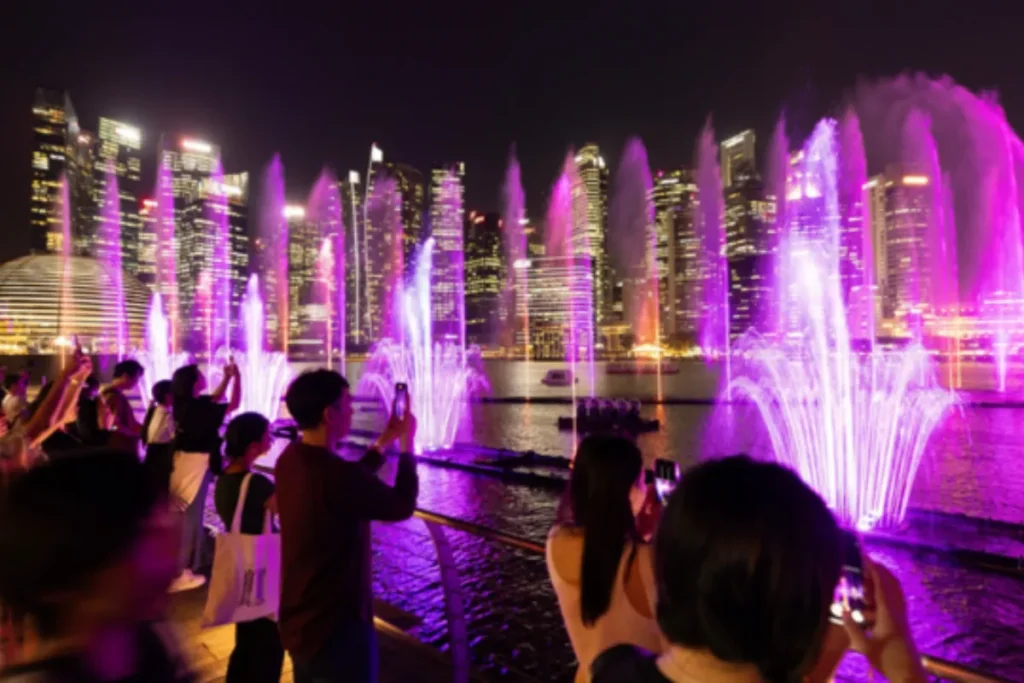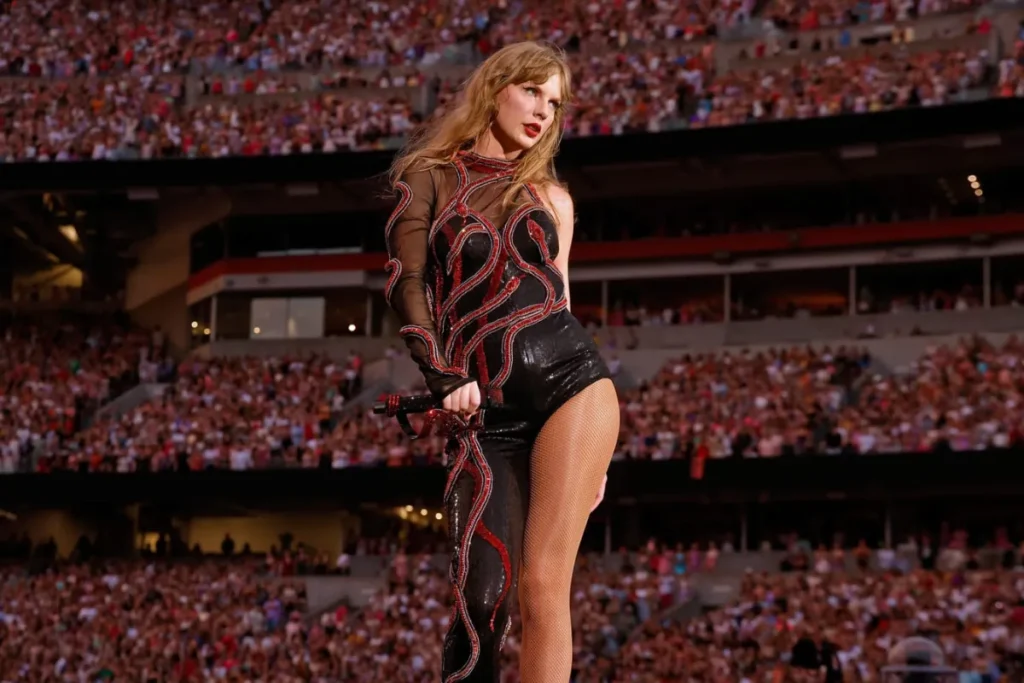The pop music industry is no stranger to drama, and the latest feud to hit the headlines involves none other than global superstar Taylor Swift and the government of Singapore.
Reports have emerged of tensions between Swift and Singaporean authorities over subsidies for her highly anticipated “Eras” tour stop in the city-state.
In this article, we’ll delve into the details of the controversy, explore the perspectives of both Swift and the Singaporean government, and examine the potential implications for the music industry and international relations.
The Background

Taylor Swift’s “Eras” tour, named after her re-released albums under the “Taylor’s Version” banner, has been generating excitement among fans around the world.
With its dazzling production, high-energy performances, and hits spanning Swift’s illustrious career, the tour promises to be a must-see event for music lovers everywhere.

However, controversy arose when reports surfaced that Swift had requested financial subsidies from the Singaporean government to support her tour stop in the city-state.
According to sources close to the situation, Swift’s team had sought substantial financial assistance, including venue rental subsidies and promotional support, in exchange for bringing her tour to Singapore.
Swift’s Perspective

While Taylor Swift has yet to comment publicly on the controversy, sources close to the singer have indicated that she feels justified in seeking subsidies for her tour stop in Singapore.
According to these sources, Swift’s team believes that the “Eras” tour will bring significant economic benefits to Singapore, including increased tourism revenue and international exposure for the city-state.
Additionally, Swift’s team has argued that other countries and cities routinely provide financial incentives to attract major events and performances, and that Singapore should be no exception.
With Swift’s “Eras” tour being one of the most highly anticipated events in the music industry, her team believes that Singapore stands to gain much from hosting the tour stop.
The Singaporean Government’s Perspective

On the other side of the dispute, Singaporean authorities have reportedly been hesitant to provide the requested subsidies to Taylor Swift’s team.
While the government acknowledges the potential benefits of hosting the “Eras” tour, officials have expressed concerns about the precedent that would be set by providing financial assistance to international artists and performers.
According to sources within the Singaporean government, there is also concern about the optics of providing subsidies to a wealthy and successful artist like Taylor Swift.
With Singapore facing economic challenges and budget constraints, officials are wary of allocating taxpayer funds to support a high-profile entertainment event.
Implications

The controversy over subsidies for Taylor Swift’s “Eras” tour stop in Singapore has raised broader questions about the relationship between the music industry and government support for cultural events.
While subsidies and incentives are common in many countries to attract major concerts and performances, the dispute in Singapore highlights the challenges and complexities involved in such arrangements.

For Taylor Swift, the outcome of the dispute could have implications for her future tours and performances in Singapore and other countries.
If Singapore ultimately declines to provide subsidies for her “Eras” tour stop, it could set a precedent for other countries to follow suit, potentially impacting Swift’s ability to tour in certain regions.

For the Singaporean government, the controversy underscores the delicate balance between promoting cultural events and responsible fiscal management.
While hosting major concerts and performances can boost tourism and promote Singapore as a global entertainment hub, officials must weigh the costs and benefits of providing financial support to international artists.
Conclusion
As tensions simmer between Taylor Swift and Singaporean authorities over subsidies for her “Eras” tour stop, the music industry and government officials alike are watching closely to see how the dispute will unfold.
With both sides digging in their heels, the outcome remains uncertain, but one thing is clear:
the controversy over Taylor Swift’s tour subsidies has sparked a debate about the intersection of music, economics, and government policy that is unlikely to fade anytime soon.
